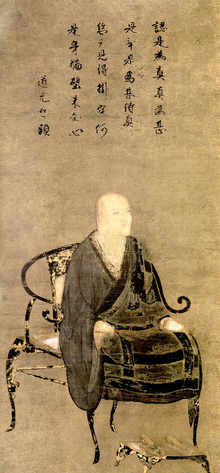
In this lecture, A. H. Almaas introduces the 13th-century Zen master Eihei Dogen Zenji, founder of the Soto school of Zen in Japan. Speaking not as a scholar but from lived spiritual understanding, Almaas highlights Dogen’s unique realizations—many of which challenge modern assumptions and expand the boundaries of contemporary spiritual thought. A timely and insightful look at a profound yet often misunderstood teacher.
Summary
In 1228 CE, the Japanese monk Dogen returned to his homeland from China, where he had lived for four years and received Dharma transmission from the Buddhist master Rujing. Dogen went on to introduce the practice of zazen in Japan and founded the school of Soto Zen, which, 800 years later, flourishes worldwide.
Dogen’s teachings diverged starkly from the Tendai Buddhist training he had received before going to China. That school promoted the doctrine of original enlightenment, which claimed that because humans are enlightened by nature, we cannot achieve enlightenment through practice. Dogen disagreed. As he wrote, “Practice is realization and realization is practice.”
Dogen’s writings about realization and awakening were revelatory and they remain so, not being easily understood even by teachers of Zen. In this lecture, Almaas will investigate some of the realizations Dogen introduced that are not commonly known or understood by most of the spiritual community in the west; it will be useful for many to recognize the greater horizons that our spiritual nature can open.
The lecture will last approximately 75 to 90 minutes followed by a question and comment period.

